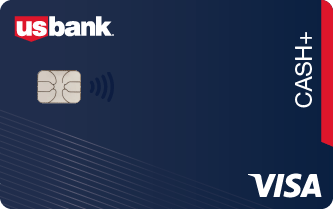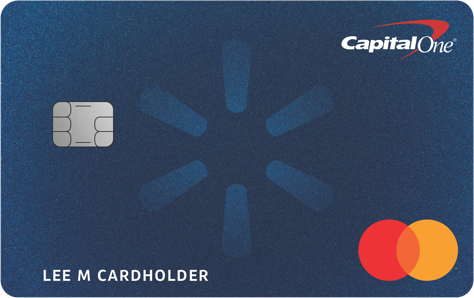- myFICO® Forums
- FICO Scoring and Other Credit Topics
- General Credit Topics
- Re: Legal Timeline from creditor to collection age...
- Subscribe to RSS Feed
- Mark Topic as New
- Mark Topic as Read
- Float this Topic for Current User
- Bookmark
- Subscribe
- Mute
- Printer Friendly Page
Legal Timeline from creditor to collection agency
Is your credit card giving you the perks you want?
Browse credit cards from a variety of issuers to see if there's a better card for you.
- Mark as New
- Bookmark
- Subscribe
- Mute
- Subscribe to RSS Feed
- Permalink
- Report Inappropriate Content
Legal Timeline from creditor to collection agency
- Mark as New
- Bookmark
- Subscribe
- Mute
- Subscribe to RSS Feed
- Permalink
- Report Inappropriate Content
Re: Legal Timeline from creditor to collection agency
|| AmX Cash Magnet $40.5K || NFCU CashRewards $30K || Discover IT $24.7K || Macys $24.2K || NFCU CLOC $15K || NFCU Platinum $15K || CitiCostco $12.7K || Chase FU $12.7K || Apple Card $7K || BOA CashRewards $6K
- Mark as New
- Bookmark
- Subscribe
- Mute
- Subscribe to RSS Feed
- Permalink
- Report Inappropriate Content
Re: Legal Timeline from creditor to collection agency
- Mark as New
- Bookmark
- Subscribe
- Mute
- Subscribe to RSS Feed
- Permalink
- Report Inappropriate Content
Re: Legal Timeline from creditor to collection agency
EDIT: I found this on Google, which may be a reason it happened so fast: Sometimes collection agencies manage the entire account receivables process for a creditor.
|| AmX Cash Magnet $40.5K || NFCU CashRewards $30K || Discover IT $24.7K || Macys $24.2K || NFCU CLOC $15K || NFCU Platinum $15K || CitiCostco $12.7K || Chase FU $12.7K || Apple Card $7K || BOA CashRewards $6K
- Mark as New
- Bookmark
- Subscribe
- Mute
- Subscribe to RSS Feed
- Permalink
- Report Inappropriate Content
Re: Legal Timeline from creditor to collection agency
I was under the assumption that when a collection agency gets your bill that it will affect your credit. Maybe i'm wrong, maybe your right. But im not chancing it. Just get a lawyer and ask him what to do. I have a 835 fico. And i need it high for the coming year.I just can't chance it. Itill meed somebody to answer legally how fast it can go to collections. Maybe it doesn't matter. This is so fu.
- Mark as New
- Bookmark
- Subscribe
- Mute
- Subscribe to RSS Feed
- Permalink
- Report Inappropriate Content
Re: Legal Timeline from creditor to collection agency
Your score drops when a collection account appears on your CR. You don't seem to be disputing that the debt is yours so you need to pay it.
How to pay it is a different matter. First check all 3 CR. If the collections account is NOT on your CR then it has not had any effect on your FICO scores. In that case I would pay it ASAP so that it does not get reported.
If it is on an of your CR then you have taken a Hit to your FICO scores. In that case I would ask for a PFD from the collection agency.
As far as I know a creditor can send a debt to a collections agency as soon as a payment is 1 day late. In practice this almost never happens. A late payment can not be on your credit report until you are 30 days late, but that doesn't mean the debt can't be sent to a collections agency.



Current Scores

















Garden Goal is All Reports Clean – Achieved 11/26/20

- Mark as New
- Bookmark
- Subscribe
- Mute
- Subscribe to RSS Feed
- Permalink
- Report Inappropriate Content
Re: Legal Timeline from creditor to collection agency
A creditor can choose to use the services of a debt collector to assist in collection of a debt anytime after the debt has become delinquent.
There is no required period for any delay, and no requirement for notice to the consumer from either the creditor or debt collector before collection authority can be assigned.
There additionally is no requirment for any prior notice to the consumer before the debt collector can report their collection to a CRA.
It is uncommon for a creditor to invest in the time and expense of obtaining a debt collector until the debt has at least reached the stage of major delinquency, which is commonly at least 90 days late.
However, the question is whether there are any required delay periods.
As for options, the devil is in the details.
The primary first consideration is the type of debt, and thus the billing notice requirment that is required.
If it is an installment loan, then the terms are clearly set forth in the loan agreement, and the installment amount and due dates are set forth via that contract. If, however, the debt is revolving, such as a credit card, then the Fair Credit Billing Act establishes billing notice requirements of the minimum payment amount and the billing due date.
Mailing to the incorrect address would then become an issue of why it was mailed to an incorrect address.
Was the error clearly on the part of the creditor, or did they mail to the address of record noticed to them?
ARe you contesting that you were not aware of any debt until after it was placed for collection?
Details of the facts is necessary to provide guidance as to fault, and thus next steps......
In the meantime, I would strongly suggest paying the delinquency amount to avoid any further damage, including a longer period of delinquency and reproting of the collection by the debt collector.
You can make a pay for not reporting offer directly to the debt collector, and then deal with the issue of fault, and thus removal of any default penalties or delinquency reporting by the creditor.
- Mark as New
- Bookmark
- Subscribe
- Mute
- Subscribe to RSS Feed
- Permalink
- Report Inappropriate Content
Re: Legal Timeline from creditor to collection agency
@RobertEG wrote:
You can make a pay for not reporting offer directly to the debt collector, and then deal with the issue of fault, and thus removal of any default penalties or delinquency reporting by the creditor.
Note carefully what RobertEG says. By advising that you make an explicit PFNR to the debt collector, he is implying that:
(a) Just because the collection hasn't on a report yet doesn't mean that it isn't about to be submitted (or perhaps has been submitted but needs another few days to appear in the CRA database)
(b) Just because you pay the debt now does not mean the debt collector won't submit the collection to the CRAs later
The best protection would be to negotiate an explicit PFNR agreement.
- Mark as New
- Bookmark
- Subscribe
- Mute
- Subscribe to RSS Feed
- Permalink
- Report Inappropriate Content
Re: Legal Timeline from creditor to collection agency
So it was from our old property mgmt at our apartment building. We switched apts mid lease and was told no lease termination fee would apply. ( it was also in the conract). We moved out on September 5th and they sent our cleaning bill yo the old apt number. They sent the bill September 14th.( The cleaning and electric bills totaled 380.00. They tacked on the 3,600 for the termination fee. Aren’t they sweet. ). So the first we heard of it was about October 14th we received the collection notice. No email no phone call. We always paid online automatically Anyway. The apt mgmt agreed the termination fee was incorrect. But now the collection agency wont delete the 3,600.00. Greedy. It’s insane.
- Mark as New
- Bookmark
- Subscribe
- Mute
- Subscribe to RSS Feed
- Permalink
- Report Inappropriate Content
Re: Legal Timeline from creditor to collection agency
If you file a dispute with the CRA, that requires the CRA to forward a copy of your dispute to the debt collector,and the debt collector to then conduct a reasonalbe investigation and report their findings back tothe CRA no later than 30 days from the date of filing of your dispute.
Include documentation of your arguments in your dispute as evidence of you claim for the statement by the creditor that there is no delinquent debt.
A reasonble investigation would necessarily require the debt collector to contact the creditor and obtain their statement as to whether the debt was legit. If the creditor informs the debt collector that the debt is not valid, then the debt collector would have to either delete their reporting, or notify the CRA that the debt is not valid, and let the CRA delete.
If the debt collector verifies the accuracy as reported, notwithstanding your evidence and the apparent confirmation by the creditor of no debt, then you have legal basis for bringing civil action and get the matter before the court. Bringing of civil action would also entitle you to seek damages for willful or negligent conduct of their investigation and verification.
In court, for example, evidence could be compelled via discovery as to whether the debt collector contacted the creditor as part of their reasonable investigation of the accuracy of the debt, and what the creditor provided to the debt collector.
If the debt collector either failed to contact the creditor, or received statement from the creditor that the debt was not legit, and yet the debt collector verified the accuracy back to the CRA, that would likely be willful or negligent violation of the reaonalbe investigation of the dispute, and subject them to civil damages under FCRA 616 or 617.
Bottom line, file a dispute with the CRA and force the debt collector to investigate and reply back to the CRA.